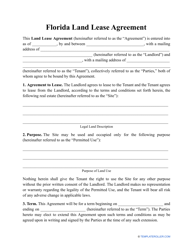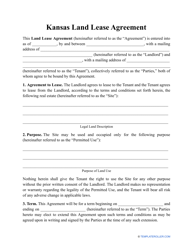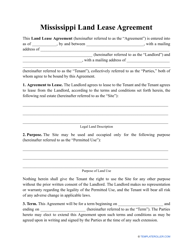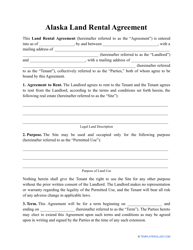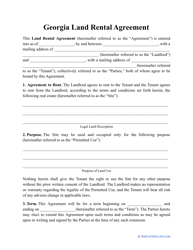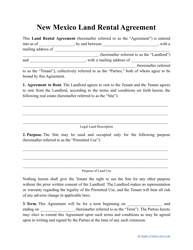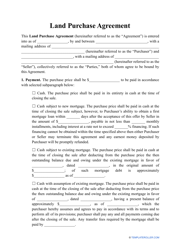Leasing Land: How to Put Together a Good Land Lease Agreement?

Vacant land is commonly used to park mobile homes and movable tiny houses, situating billboards and for farming. Wondering how to go about making your own Land Lease Agreement? Take a look at the guide provided below.
What Is a Land Lease?
A land lease is a lease contract that allows one person (called a tenant or lessee) to use a piece of land owned by another (called a landlord or lessor) in exchange for rent.
Alternate Name:
- Ground Lease.
A land lease is similar to a traditional property lease, in the sense that there are both residential and commercial agreements. The tenant may want to develop the property and the lease gives this individual the right to take possession of real estate comprised of soil, thus permitting the tenant to use it for various purposes ranging from agricultural to commercial.
What Is a Land Lease Agreement?
It's strongly advised that you use a Land Lease Agreement if you need to seal your verbal agreement with a binding document. The contract outlines the expectations and roles of the parties, which gives them both a legal footing in the event of a breach of contract in the future.
How to Draw up a Land Lease Agreement?
It is quite possible to create a clear and effective document for your real estate property by using a template. The usage of specific nomenclature when referring to the individuals signing the contract is important, just like determining the duration of the lease in a clear and concise manner. The absence of this information annuls the validity of the document. Add any relevant clauses concerning profit-sharing in the event the tenant pays you interest off the land's profits.
The parties’ information contains the usual who, what, where, and when, including the specific amounts in acres, intended use of the land and legally recognized description, like metes-and-bounds method, photos, diagrams and the like. Proceed with the why and how, meaning how the rent will be paid, either in a lump sum or based on the yield of crops (crop-share rent or sharecropping).
You may wish to add clauses related to the access and facilities, providing information on the right of the landlord to enter the land for special reasons, possible gates, roads or structures the tenant may or may not use, and so on. Yet other useful clauses may be an agreement on possible amendments, choice of law, government regulations, a clause on dispute resolution, improvements, and maintenance, and finally, insurance and liability. Some Land Lease Agreements will include clauses regarding mortgages, permits, mineral or subsurface rights, subletting, use of motorized vehicles, utilities, security deposits, severability, surrender, taxes and termination details in case the tenant fails to pay rent or maintain the land.
